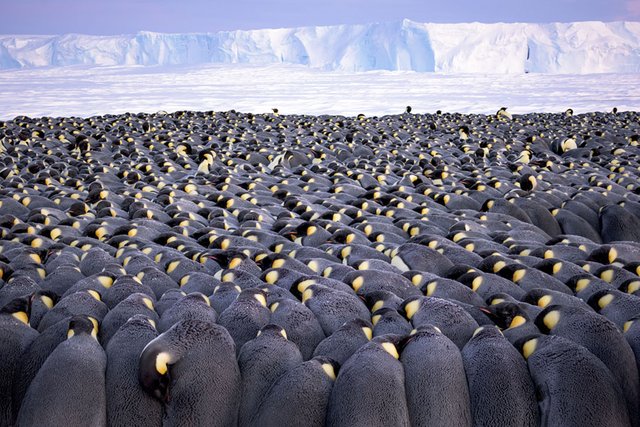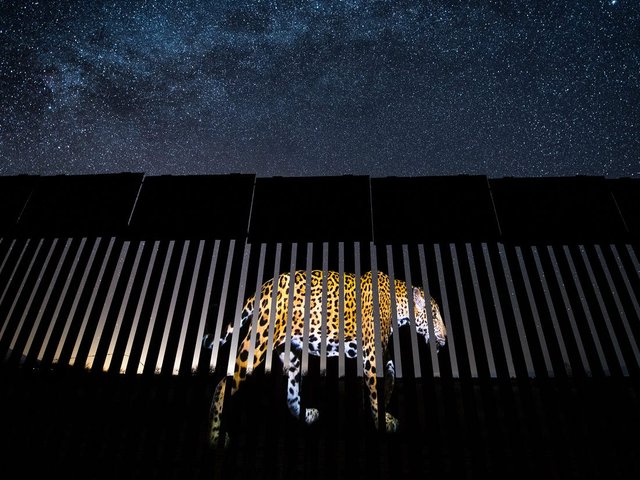See the best wildlife photos of 2019
THE MARMOT LOOKS paralyzed by fear, its fingers splayed and mouth agape. The fox is poised to pounce. It’s a freeze-frame of chaos, impulse, and terror—nature at its essence.
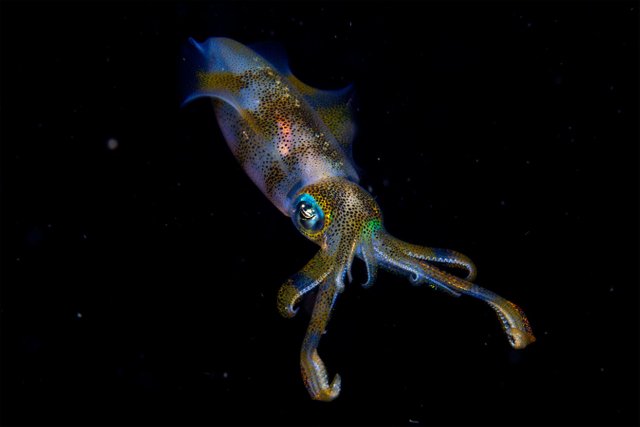
For his remarkable memorialization of the moment before the attack, Chinese photographer Yongqing Bao has won Wildlife Photographer of the Year, awarded today by London’s Natural History Museum.
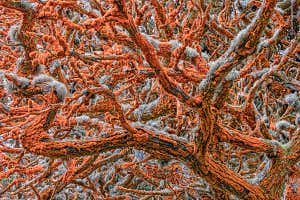
Bao captured the photograph, titled “The Moment,” in the meadowland of China’s Tibetan Plateau. At 14,800 feet above sea level, the plateau is often called “the roof of the world.” Images from the region “are rare enough,” says Roz Kidman Cox, chair of the judging panel, in a press release. “But to have captured such a powerful interaction between a Tibetan fox and a marmot—two species key to the ecology of this high-grassland region—is extraordinary.” (If you're wondering, the fox's attack was successful—the marmot did not survive).
.jpg)
Fourteen-year-old Cruz Erdmann won Young Wildlife Photographer of the Year, the competition’s other top distinction, for his underwater photograph of an iridescent bigfin reef squid, captured on a night dive in the Lembeh Strait, off Indonesia.
The prestigious competition, which is in its 55th year, encompasses 19 categories of wildlife photography that include behavior, photojournalism, and portraiture. This year, the competition received 48,000 entries from photographers across 100 countries. (See last year’s winners here.)
National Geographic photographers won four awards. David Doubilet won the “underwater” category for his photo of an elusive deep-sea colony of garden eels. The eels, which emerge vertically out of burrows in the sand, resembling a field of plants, are extremely difficult to capture. “Once they detect your presence they disappear for hours,” Doubilet says. “They will vanish entirely before your eyes like an underwater mirage.”
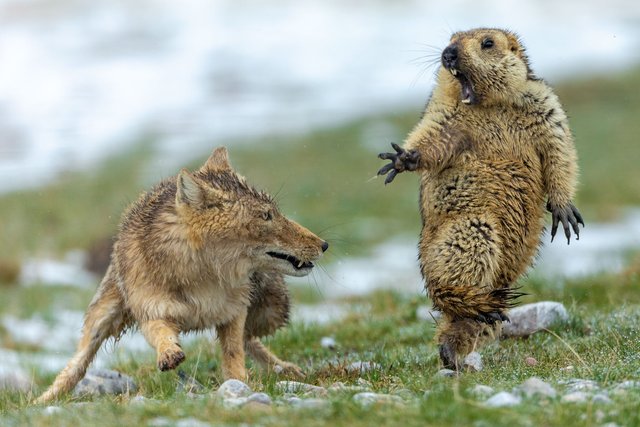
Doubilet managed to capture the massive colony by hiding his camera in the middle of the field of burrow holes and hiding behind a shipwreck. When the eels popped up, he clicked his shutter remotely. It took him days to get the shot.
Photographer Jasper Doest won the photojournalism story category for his images of exploited Japanese macaques. Once revered in Japan, the animals are now widely seen as pests and are trained to perform for people. “Through this series, I wanted to have people start reconsidering their relationship with the animals surrounding them,” Doest says. His story will publish in National Geographic magazine in early 2020. (Learn how to photograph wildlife ethically.)
.jpg)
For his image of a puma attempting to take down a guanaco, from the December 2018 story on the Patagonian predators, Ingo Arndt shared the top award in the “mammal behavior” category with Yongqing Bao. Taken in his seventh-month tracking pumas on foot, the image “was the key picture for the story,” Arndt says. Although guanacos are the main prey for pumas, no one had photographed this essential hunt in detail before, he notes. The guanaco, three times heavier than the female puma, managed to escape.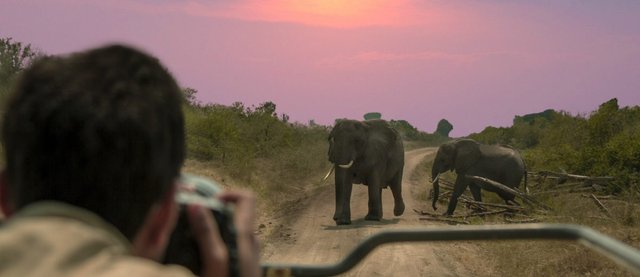
National Geographic’s final honor went to Charlie Hamilton James, who won the urban wildlife category for his intimate photograph of rats on the prowl in New York City at night.
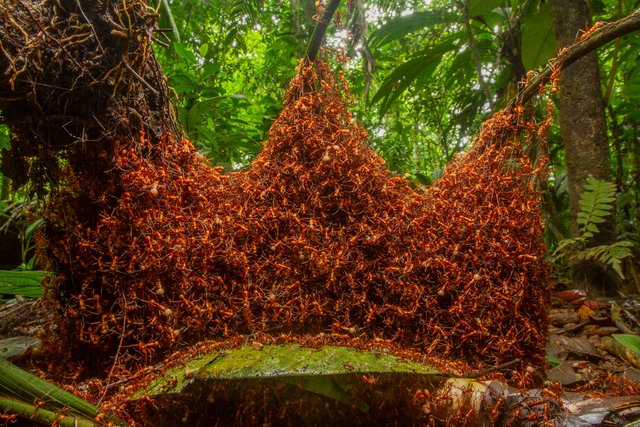
“People now call me the rat guy,” says Hamilton James, who says he’d previously been called “the otter guy” for his camera trap images of otters in Yellowstone, “which is much nicer.”
“They just do what rats do and live where rats live,” he says of his subjects. He followed the rodents into sewers and crevices over months in the city. “It was amazing to see how they had just fit into the cracks of New York so brilliantly,” says Hamilton James, who says he loved shooting New York at night.
“After a while working with them I started to respect them,” he says. “I’d never say I love them, but I do quite like them.”
